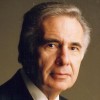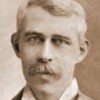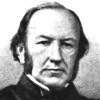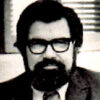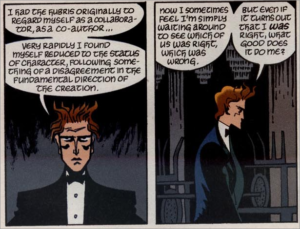Quotations about:
pride
Note not all quotations have been tagged, so Search may find additional quotes on this topic.
Accepting praize that iz not our due iz not mutch better than tew be a receiver of stolen goods.
[Accepting praise that is not our due is not much better than to be a receiver of stolen goods.]
When friends and acquaintances are telling you you are a genius, before you accept their opinion, take a moment to remember what you always thought of their opinions in the past.
Carl Icahn (b. 1936) American businessman and investor
In “The Best Financial Advice I Ever Got (or Gave),” Wall Street Journal (6 Jan 2014)
(Source)
There is no limit to what a man can do so long as he does not care a straw who gets the credit for it.
Charles Edward "C. E." Montague (1867-1928) English journalist, novelist, essayist
“Any Cure?” sec. 3, Disenchantment (1922)
(Source)
Montague did not take credit for the phrase, referring to it as a saying.
This was not the first time Montague used the phrase. In a memoir about journalist William T. Arnold in 1906, he stated that a phrase that "someone has said" was a particular favorite of Arnold's: "There is no limit to what a man can do who does not care who gains the credit for it."
More discussion of the quote and its origins: A Man May Do an Immense Deal of Good, If He Does Not Care Who Gets the Credit – Quote Investigator. See also Truman.
People in general will much better bear being told of their vices or crimes than of their little failings or weaknesses.
Lord Chesterfield (1694-1773) English statesman, wit [Philip Dormer Stanhope]
Letter to his son, #204 (26 Nov 1749)
(Source)
It is so pleasant to come across people more stupid than ourselves. We love them at once for being so.
Jerome K. Jerome (1859-1927) English writer, humorist [Jerome Klapka Jerome]
“On Cats and Dogs,” The Idle Thoughts of an Idle Fellow (1889)
(Source)
The evil that is in the world always comes of ignorance, and good intentions may do as much harm as malevolence, if they lack understanding. On the whole men are more good than bad; that, however, isn’t the real point. But they are more or less ignorant, and it is this that we call vice or virtue; the most incorrigible vice being that of an ignorance which fancies it knows everything and therefore claims for itself the right to kill. There can be no true goodness, nor true love, without the utmost clear-sightedness.
There is no method more likely to cure passion and rashness, than the frequent and attentive consideration of one’s own weaknesses: this will work into the mind an habitual sense of the need one has of being pardoned, and will bring down the swelling pride and obstinacy of heart, which are the cause of hasty passion.
James Burgh (1714-1775) British politician and writer
The Dignity of Human Nature, Sec. 5 “Miscellaneous Thoughts on Prudence in Conversation” (1754)
(Source)
Heads of the Church have often been narcissists, flattered and thrilled by their courtiers. The court is the leprosy of the papacy.
Francis I (b. 1936) Argentinian Catholic Pope (2013- ) [b. Jorge Mario Bergoglio]
“How the Church Will Change,” interview with Eugenio Scalfari, La Repubblica (1 Oct 2013) [tr. K Wallace]
(Source)
A very desperate habit; one that is rarely cured. Apology is only egotism wrong side out. Nine times out of ten, the first thing a man’s companion knows of his short-comings is from his apology.
Only bad writers think that their work is really good.
Anne Enright (b. 1962) Irish writer
In “Ten Rules for Writing Fiction,” The Guardian (20 Feb 2010)
(Source)
Praise your friends, and let your friends praise you.
James Burgh (1714-1775) British politician and writer
The Dignity of Human Nature, Sec. 5 “Miscellaneous Thoughts on Prudence in Conversation” (1754)
(Source)
There are few things that we so unwillingly give up, even in advanced age, as the supposition that we still have the power of ingratiating ourselves with the fair sex.
Self-made men are most alwus apt tew be a leetle too proud ov the job.
[Self-made men are almost always apt to be a little too proud of the job.]
Josh Billings (1818-1885) American humorist, aphorist [pseud. of Henry Wheeler Shaw]
Josh Billings’ Farmer’s Allminax for 1873, “05 – May,” “Kold Slau” (1873)
(Source)
One cannot suppress a certain indignation when one sees men’s actions on the great world-stage and finds, beside the wisdom that appears here and there among individuals, everything in the large woven together from folly, childish vanity, even from childish malice and destructiveness. In the end, one does not know what to think of the human race, so conceited in its gifts.
Immanuel Kant (1724-1804) German philosopher
“Idea for a Universal History with a Cosmopolitan Purpose [Idee zu einer allgemeinen Geschichte in weltbürgerlicher Absicht]” (1784) [tr. Beck (1963)]
(Source)
When one sees the number and variety of institutions which exist for the purposes of education, and the vast throng of scholars and masters, one might fancy the human race to be very much concerned about truth and wisdom. But here, too, appearances are deceptive. The masters teach in order to gain money, and strive, not after wisdom, but the outward show and reputation of it; and the scholars learn, not for the sake of knowledge and insight, but to be able to chatter and give themselves airs.
[Wenn man die Vielen und Mannigfaltigen Anstalten zum Lehren und Lernen un das so große Gedränge von Schülern und Meistern sieht, könnte man glauben, daß es dem Menschengeschlechte gar sehr um Einsicht und Wahrheit zu thun sei. Aber auch hier trügt der Schein. Jene lehren, um Geld zu verdienen und streben nicht nach Weisheit, sondern nach dem Schein und Kredit derselben: und Diese lernen nicht, um Kenntniß und Einsicht zu erlangen; sondern um schwätzen zu können nd sich ein Ansehn zu geben Alle dreißig Jahre nämlich tritt so ein sondern um schwätzen zu können und sich ein Ansehn zu geben.]
Arthur Schopenhauer (1788-1860) German philosopher
Parerga and Paralipomena, Vol. 2, ch. 21 “On Learning and the Learned [Über Gelehrsamkeit und Gelehrte],” § 244 (1851) [tr. Saunders (1890)]
(Source)
(Source (German)). Alternate translation:
When we see the different institutions for teaching and learning and the vast throng of pupil and masters, we might imagine that the human race was very much bent on insight and truth; but here appearances are deceptive. The masters teach in order to earn money and aspire not to wisdom, but to the semblance and reputation thereof; the pupils learn not to acquire knowledge and insight, but to be able to talk and chat and to give themselves airs.
[tr. Payne (1974)]
Every man is not ambitious, or courteous, or passionate; but every man has pride enough in his composition to feel and resent the least slight and contempt. Remember, therefore, most carefully to conceal your contempt, however just, wherever you would not make an implacable enemy. Men are much more unwilling to have their weaknesses and their imperfections known, than their crimes; and if you hint to a man that you think him silly, ignorant, or even ill-bred, or awkward, he will hate you more and longer, than if you tell him plainly, that you think him a rogue.
Lord Chesterfield (1694-1773) English statesman, wit [Philip Dormer Stanhope]
Letter to his son, #161 (5 Sep 1748)
(Source)
It is good, too, that we sometimes suffer opposition, and that men think ill of us and misjudge us, even when we do and mean well. Such things are an aid to humility, and preserve us from pride and vainglory. For we more readily turn to God as our inward witness, when men despise us and think no good of us.
[Bonum est quod patiamur quandoque contradictiones, et male et imperfecte de nobis sentiatur, etiamsi bene agimus, et intendimus. Ista sæpe juvant ad humilitatem, et a vana gloria nos defendunt. Tunc enim melius interiorem testem Deum quærimus, quando foris vilipendimur ab hominibus, et non bene de nobis creditur.]
Thomas à Kempis (c. 1380-1471) German-Dutch priest, author
The Imitation of Christ [De Imitatione Christi], Book 1, ch. 12, v. 1 (1.12.1) (c. 1418-27) [tr. Sherley-Price (1952)]
(Source)
(Source (Latin)). Alternate translations:
It is good also that we suffer sometime contradiction, and that we be holden of others as evil, and wretched, and sinful, though we do well and intend well: for such things help us to meekness and mightily defend us from vain-glory and pride. We take God the better to be our judge and witness, when we be outwardly despised in the world, and the world judgeth not well of us.
[tr. Whitford/Raynal (1530/1871)]
It also is good that we sometimes suffer contradiction, and that we be thought of by others as evil and wretched and sinful, though we do well and intend well; such things help us to humility, and mightily defend us from vainglory and pride. We take God better to be our judge and witness when we are outwardly despised in the world and the world does not judge well of us.
[tr. Whitford/Gardiner (1530/1955)]
It is good for us sometimes to be crossed and contradicted, yea to be ill spoken of, and ill thought of, although we both doe and mean well. These wonderfully increase in us the vertue of humility, and strongly beat downe in us the vice of vain-glory. For then we more earnestly call God to witnesse in us and for us, when men abroad dis-esteeme us and give no credit unto us.
[tr. Page (1639), 1.3.3-5]
The Injuries and contumelious Usage, the Calumnies and Censures of them who speak and think ill of us, bring their Profit with them too; even when most wrongful, most undeserved. For these oftentimes are an occasion of rectifying our Measures, as bringing us to a juster and more modest Opinion of our selves: They cure our Ambition and Vain-glory, and convince us how vain a thing it is, to thrill after Reputation and the Praise of Men, when even Innocence and Goodness cannot protect us from Slander and Reproaches. They teach us to set a due Value upon the Testimony of our own Consciences, and the righteous Approbation of God, the Searcher of Hearts; when that which he will not fail to commend and reward, cannot escape the Contempt and Condemnation of the World, nor prevail for so much as fair Quarter, from our mistaken and injurious Brethren.
[tr. Stanhope (1696; 1706 ed.)]
It is good for him also to meet with contradiction and reproach; and to be evil thought of, and evil spoken of, even when his intentions are upright, and his actions blameless; for this keeps him humble, and is a powerful antidote to the poison of vain glory: then chiefly it is, that we have recourse to the witness within us, which is God; when we are outwardly despised, and held in no degree of esteem and favor among men.
[tr. Payne (1803)]
It is good that we be sometimes contradicted; and that there be an evil or a lessening conceit had of us; and this, although we do and intend well. These things help often to the attaining of humility, and defend us from vain glory: for then we chiefly seek God for our inward witness, when outwardly we be contemned by men, and when there is no credit given unto us.
[ed. Parker (1841)]
It is good for us also to meet with contradiction and reproach; and to be evil thought of, and evil spoken of; even when our intentions are upright, and our actions blameless; for this keeps us humble, and is a powerful antidote to the poison of vain glory. Then chiefly it is, that we have recourse to the witness within us, which is GOD; when we are outwardly despised, and held in no esteem and favor among men.
[tr. Dibdin (1851)]
It is good that we sometimes suffer contradictions, and that men have an evil or imperfect opinion of us, even when we do and intend well. These things are often helps to humility, and defend us from vain glory. For we then better seek God as our inward witness, when outwardly we are despised by men, and little credit is given to us.
[ed. Bagster (1860)]
It is good that we sometimes endure contradictions, and are hardly and unfairly judged, when we do and mean what is good. For these things help us to be humble, and shield us from vain-glory. For then we seek the more earnestly the witness of God, when men speak evil of us falsely, and give us no credit for good.
[tr. Benham (1874)]
It is good that we be sometimes contradicted, and this, although we do and intend well. These things help often to the attaining of humility, and defend us from vain glory: for then we are more inclined to seek God for our inward witness.
[tr. Anon. (1901)]
It is good for us sometimes to suffer contradiction, to be misjudged by men even though we do well and mean well. These things help us to be humble and shield us from vainglory. When to all outward appearances men give us no credit, when they do not think well of us, then we are more inclined to seek God Who sees our hearts.
[tr. Croft/Bolton (1940)]
It is good for us sometimes to endure contradictions, and to be thought of as bad or imperfect, even when we do and mean well. Such things often help towards meekness, and protect us from idle boasting. For then we look to God, the better inward witness, when we are disparaged from without by men, and no good is credited to us.
[tr. Daplyn (1952)]
It's good for you sometimes to hear men's voices raised against you, and to find that you are making a bad impression, or at least a false impression, on others, even when you are doing your best, and with the best intentions. It often makes for humility; prevents you from having too good an opinion of yourself. It's when we make a bad surface impression, and people are ready to think ill of us, that we learn to fall back upon God's judgements, because he witnesses all our actions from within.
[tr. Knox-Oakley (1959)]
It is a good thing that we are maligned now and again, and are misjudged and disliked even when we mean and do well. This sort of thing is often a great help in achieving humility, and it keeps us from groundless self-satisfaction; for we are more ready to listen for God’s assuring voice within, when those around believe the worst of us and treat us with contempt
[tr. Knott (1962)]
It is good too that we should be contradicted and ill-thought of, even when we act with the best intentions. Experiences like these help us towards humility and guard us against vainglory. When outwardly we are slandered and ill-thought of, then we will yearn more anxiously for God’s inward witness.
[tr. Rooney (1979)]
Sometimes it is good that we put up with people speaking against us, and sometimes it is good that we be thought of as bad and flawed, even when we do good things and have good intentions. Such troubles are often aids to humility, and they protect us from pride. Indeed, we are sometimes better seeking God when people have nothing but bad things to say about us and when they refuse to give us credit for the good things we have done!
[tr. Creasy (1989)]
Do not let the wise boast in their wisdom; do not let the mighty boast in their might; do not let the wealthy boast in their wealth; but let those who boast boast in this, that they understand and know me, that I am the Lord; I act with steadfast love, justice, and righteousness in the earth, for in these things I delight, says the Lord.
The Bible (The Old Testament) (14th - 2nd C BC) Judeo-Christian sacred scripture [Tanakh, Hebrew Bible], incl. the Apocrypha (Deuterocanonicals)
Jeremiah 9:23-24 [NRSV (1989 ed.)]
(Source)
Alternate translations:
Let not the wise man glory in his wisdom, neither let the mighty man glory in his might, let not the rich man glory in his riches: But let him that glorieth glory in this, that he understandeth and knoweth me, that I am the Lord which exercise lovingkindness, judgment, and righteousness, in the earth: for in these things I delight, saith the Lord.
[KJV (1611)]
Let the sage boast no more of his wisdom, nor the valiant of his valour, nor the rich man of his riches! But if anyone wants to boast, let him boast of this: of understanding and knowing me. For I am Yahweh, I rule with kindness, justice and integrity on earth; yes, these are what please me -- it is Yahweh who speaks.
[JB (1966), 9:22-23]
The wise should not boast of their wisdom,
nor the strong of their strength,
nor the rich of their wealth.
If any want to boast,
they should boast that they know and understand me,
because my love is constant,
and I do what is just and right.
These are the things that please me.
I, the Lord, have spoken.
[GNT (1976)]
"Let the sage not boast of wisdom, nor the valiant of valour, nor the wealthy of riches! But let anyone who wants to boast, boast of this: of understanding and knowing me. For I am Yahweh, who acts with faithful love, justice, and uprightness on earth; yes, these are what please me," Yahweh declares.
[NJB (1985), 9:22-23]
Let not the wise glory in their wisdom;
Let not the strong glory in their strength;
Let not the rich glory in their riches.
But only in this should one glory:
In being earnestly devoted to Me.
For I GOD act with kindness,
Justice, and equity in the world;
For in these I delight
-- declares GOD.
[RJPS (2023 ed.), 9:22-23]
He that swells in Prosperity will shrink in Adversity.
Thomas Fuller (1654-1734) English physician, preacher, aphorist, writer
Gnomologia: Adages and Proverbs, #2321 (1732)
(Source)
If you can convince the lowest white man he’s better than the best colored man, he won’t notice you’re picking his pocket. Hell, give him somebody to look down on, and he’ll empty his pockets for you.
Lyndon B. Johnson (1908-1973) American politician, educator, US President (1963-69)
Comment (1960)
(Source)
Discussing racist graffiti in Tennessee, seen earlier in the day. Recalled in Bill Moyers, "What a Real President Was Like," Washington Post (1988-11-13).
More discussion here: Did Lyndon B. Johnson Say This About The 'Lowest White Man' and 'Best Colored Man'? | Snopes.com.
Prosperity has damn’d more Souls, than all the Devils together.
Thomas Fuller (1654-1734) English physician, preacher, aphorist, writer
Gnomologia: Adages and Proverbs, #3963 (1732)
(Source)
All things […] are best to those who know no better.
Samuel Butler (1835-1902) English novelist, satirist, scholar
“Ignorance”
(Source)
Full passage:The less Judgment any Man ha's the Better he is perswaded of his owne abilities, because he is not capable of understanding anything beyond it, and all things how mean so ever, are best to those who know no better: for beside the naturall affection that he has for himself, which go's very farre, the less he is able to improve and mend his Judgment, the higher value he sets upon it, and can no more correct his own false opinions, when he is at his height, than outgrow his own Stature.
The teachers of the law and the Pharisees sit in Moses’ seat. So you must be careful to do everything they tell you. But do not do what they do, for they do not practice what they preach. They tie up heavy, cumbersome loads and put them on other people’s shoulders, but they themselves are not willing to lift a finger to move them. Everything they do is done for people to see: They make their phylacteries wide and the tassels on their garments long; they love the place of honor at banquets and the most important seats in the synagogues; they love to be greeted with respect in the marketplaces and to be called ‘Rabbi’ by others.
The Bible (The New Testament) (AD 1st - 2nd C) Christian sacred scripture
Matthew 23:2-7 (NIV)
(Source)
Alt trans:
- "The scribes and the Pharisees sit on Moses' seat; so practice and observe whatever they tell you, but not what they do; for they preach, but do not practice. They bind heavy burdens, hard to bear, and lay them on men's shoulders; but they themselves will not move them with their finger. They do all their deeds to be seen by men; for they make their phylacteries broad and their fringes long, and they love the place of honor at feasts and the best seats in the synagogues, and salutations in the market places, and being called rabbi by men." [NRSV]
- "The scribes and the Pharisees sit in Moses' seat: All therefore whatsoever they bid you observe, that observe and do; but do not ye after their works: for they say, and do not. For they bind heavy burdens and grievous to be borne, and lay them on men's shoulders; but they themselves will not move them with one of their fingers. But all their works they do for to be seen of men: they make broad their phylacteries, and enlarge the borders of their garments, and love the uppermost rooms at feasts, and the chief seats in the synagogues, and greetings in the markets, and to be called of men, Rabbi, Rabbi." [KJV]
The man who is unable to laugh at his god is a man who does not quite believe in his god. In the Middle Ages, when Christians were really Christians, the burlesque mass flourished, and even bishops took part in it. Today, with not enough faith left in Christendom to make a single martyr, a burlesque mass would end in a lynching — and Jews and Protestants would help pull the rope.
H. L. Mencken (1880-1956) American writer and journalist [Henry Lewis Mencken]
“Pertinent and Impertinent,” Smart Set (Jun 1913) [as Owen Hatteras]
(Source)
But he was at home there, he might speake his will,
Every cocke is proud on his owne dunghill.John Heywood (1497?-1580?) English playwright and epigrammist
Proverbes, Part 1, ch. 11 (1546)
(Source)
I regret that I am not clear as to what you intend by arisch. I am not of Aryan extraction: that is Indo-Iranian; as far as I am aware none of my ancestors spoke Hindustani, Persian, Gypsy, or any related dialects. But if I am to understand that you are enquiring whether I am of Jewish origin, I can only reply that I regret that I appear to have no ancestors of that gifted people. My great-great-grandfather came to England in the eighteenth century from Germany: the main part of my descent is therefore purely English, and I am an English subject — which should be sufficient. I have been accustomed, nonetheless, to regard my German name with pride, and continued to do so throughout the period of the late regrettable war, in which I served in the English army. I cannot, however, forbear to comment that if impertinent and irrelevant inquiries of this sort are to become the rule in matters of literature, then the time is not far distant when a German name will no longer be a source of pride.
J.R.R. Tolkien (1892-1973) English writer, fabulist, philologist, academic [John Ronald Reuel Tolkien]
Letter to Rütten & Loening Publishing (1938-07-25)
(Source)
In response to the inquiry by a German publishing house about his ancestry, prior to their releasing a German-language edition of The Hobbit. Tolkien drafted two letters to Stanley Unwin, his agent. Unwin forwarded the other one, which refused to answer the question at all.
The Hobbit did not appear in German until 1957.
For such is the nature of men that howsoever they may acknowledge many others to be more witty, or more eloquent or more learned, yet they will hardly believe there be many so wise as themselves; for they see their own wit at hand, and other men’s at a distance.
Even in common people, conceit has the virtue of making them cheerful; the man who thinks his wife, his baby, his house, his horse, his dog, and himself severally unequalled, is almost sure to be a good-humored person, though liable to be tedious at times.
Oliver Wendell Holmes, Sr. (1809-1894) American poet, essayist, scholar
“The Autocrat of the Breakfast-Table,” Atlantic Monthly (1857-11)
Collected in The Autocrat of the Breakfast-Table, ch. 1 (1858)
LUCIFER: I had the hubris originally to regard myself as a collaborator, as a co-author …. Very rapidly I found myself reduced to the status of character, following something of a disagreement in the fundamental direction of the Creation. Now I sometimes feel I’m simply waiting around to see which of us was right, which was wrong.
Neil Gaiman (b. 1960) British author, screenwriter, fabulist
Sandman, Book 9. The Kindly Ones, # 69 “The Kindly Ones” (1995-07)
(Source)
‘Tis an old maxim in the schools,
That flattery’s the food of fools;
Yet now and then your men of wit
Will condescend to take a bit.Jonathan Swift (1667-1745) English writer and churchman
“Cadenus and Vanessa,” l. 766ff (1713)
(Source)
In my heart there may be doubt that I deserve the Nobel award over other men of letters whom I hold in respect and reverence — but there is no question of my pleasure and pride in having it for myself.
How many crimes committed merely because their authors could not endure being wrong?
Albert Camus (1913-1960) Algerian-French novelist, essayist, playwright
The Fall [La Chute] (1956) [tr. O’Brien]
(Source)
Many can bear Adversity but few Contempt.
Thomas Fuller (1654-1734) English physician, preacher, aphorist, writer
Gnomologia: Adages and Proverbs, #3340 (1732)
(Source)
Patriotism is proud of a country’s virtues and eager to correct its deficiencies; it also acknowledges the legitimate patriotism of other countries, with their own specific virtues. The pride of nationalism, however, trumpets its country’s virtues and denies its deficiencies, while it is contemptuous toward the virtues of other countries. It wants to be, and proclaims itself to be, “the greatest,” but greatness is not required of a country; only goodness is.
Then, do not have one mind, and one alone
that only your opinion can be right.
Whoever thinks that he alone is wise,
his eloquence, his mind, above the rest,
come the unfolding, shows his emptiness.[μή νυν ἓν ἦθος μοῦνον ἐν σαυτῷ φόρει,
ὡς φὴς σύ, κοὐδὲν ἄλλο, τοῦτ᾽ ὀρθῶς ἔχειν.
ὅστις γὰρ αὐτὸς ἢ φρονεῖν μόνος δοκεῖ,
ἢ γλῶσσαν, ἣν οὐκ ἄλλος, ἢ ψυχὴν ἔχειν,
οὗτοι διαπτυχθέντες ὤφθησαν κενοί.]Sophocles (496-406 BC) Greek tragic playwright
Antigone, l. 705ff [Haemon] (441 BC) [tr. Wyckoff]
(Source)
Original Greek. Alt. trans.:
Then cleave not solely to this principle --
Thy words, no other man's, are free from error.
For whoso thinks that he alone is wise,
That his discourse and reason are unmatched,
He, when unwrapt, displays his emptiness.
[tr. Donaldson (1848)]
Therefore, my father, cling not to one mood,
And deem not thou art right, all others wrong.
For whoso thinks that wisdom dwells with him,
That he alone can speak or think aright,
Such oracles are empty breath when tried.
[tr. Storr (1859)]
Do not, then, bear one mood only in yourself: do not think that your word and no other, must be right. For if any man thinks that he alone is wise -- that in speech or in mind he has no peer -- such a soul, when laid open, is always found empty.
[tr. Jebb (1891)]
Oh, do not, then, retain thy will
And still believe no sense but thine
Can judge aright; the man who proudly thinks
None but himself or eloquent or wise,
By time betrayed is branded for an idiot.
[tr. Werner (1892)]
Wear not, then, one mood only in thyself; think not that thy word, and thine alone, must be right. For if any man thinks that he alone is wise, -- that in speech, or in mind, he hath no peer, -- such a soul, when laid open, is ever found empty.
[tr. Jebb (1917)]
I beg you, do not be unchangeable:
Do not believe that you alone can be right.
The man who thinks that,
The man who maintains that only he has the power
To reason correctly, the gift to speak, to soul ––
A man like that, when you know him, turns out empty.
[tr. Fitts/Fitzgerald (1939), ll. 564 ff]
Therefore I say,
Let not your first thought be your only thought.
Think if there cannot be some other way.
Surely, to think your own the only wisdom,
And yours the only word, the only will,
Betrays a shallow spirit, an empty heart.
[tr. Watling (1947), ll. 602 ff]
And now, don't always cling to the same anger,
Don't keep saying that this, and nothing else, is right.
If a man believes that he along has a sound mind,
And no one else can speak or think as well as he does,
Then, when people study him, they'll find an empty book.
[tr. Woodruff (2001)]
So, don’t be so single-minded. You said it yourself quite rightly: he who thinks that he’s the only one with a brain or a tongue or a soul, if you open him up you’ll find that he’s a hollow man.
[tr. Theodoridis (2004)]
So don’t let your mind dwell on just one thought,
that what you say is right and nothing else.
A man who thinks that only he is wise,
that he can speak and think like no one else,
when such men are exposed, then all can see
their emptiness inside.
[tr. Johnston (2005), ll. 799 ff]
Do not wear one and only one frame of mind in yourself,
that what you say, and nothing else, is right.
Whoever imagines that he and he alone has sense
or has a tongue or an essence that no other has,
these men, when unfolded, are seen to be empty.
[tr. Tyrell/Bennett]
On the other hand, the cheapest form of pride is national pride; for the man affected therewith betrays a want of individual qualities of which he might be proud, since he would not otherwise resort to that which he shares with so many millions. The man who possesses outstanding personal qualities will rather see most clearly the faults of his own nation, for he has them constantly before his eyes. But every miserable fool, who has nothing in the world whereof he could be proud, resorts finally to being proud of the very nation to which he belongs. In this he finds compensation and is now ready and thankful to defend, “tooth and nail,” all the faults and follies peculiar to it.
[Die wohlfeilste Art des Stolzes hingegen ist der Nationalstolz. Denn er verrät in dem damit Behafteten den Mangel an individuellen Eigenschaften, auf die er stolz sein könnte, indem er sonst nicht zu dem greifen würde, was er mit so vielen Millionen teilt. Wer bedeutende persönliche Vorzüge besitzt, wird vielmehr die Fehler seiner eigenen Nation, da er sie beständig vor Augen hat, am deutlichsten erkennen. Aber jeder erbärmliche Tropf, der nichts in der Welt hat, darauf er stolz sein könnte, ergreift das letzte Mittel, auf die Nation, der er gerade angehört, stolz zu sein. Hieran erholt er sich und ist nun dankbarlich bereit, alle Fehler und Torheiten, die ihr eigen sind, mit Händen und Füßen zu verteidigen.]
Arthur Schopenhauer (1788-1860) German philosopher
Parerga and Paralipomena, Vol. 1, “Aphorisms on the Wisdom of Life [Aphorismen zur Lebensweisheit],” ch. 4 “From What One Imagines [Von dem, was einer vorstellt]” (1851) [tr. Payne (1974)]
(Source)
(Source (German)). Alternate translation:
The cheapest sort of pride is national pride; for if a man is proud of his own nation, it argues that he has no qualities of his own of which he can be proud; otherwise he would not have recourse to those which he shares with so many millions of his fellowmen. The man who is endowed with important personal qualities will be only too ready to see clearly in what respects his own nation falls short, since their failings will be constantly before his eyes. But every miserable fool who has nothing at all of which he can be proud adopts, as a last resource, pride in the nation to which he belongs; he is ready and glad to defend all its faults and follies tooth and nail, thus reimbursing himself for his own inferiority.
[tr. Saunders (1890)]
The cheapest form of pride however is national pride. For it betrays in the one thus afflicted the lack of individual qualities of which he could be proud, while he would not otherwise reach for what he shares with so many millions. He who possesses significant personal merits will rather recognise the defects of his own nation, as he has them constantly before his eyes, most clearly. But that poor beggar who has nothing in the world of which he can be proud, latches onto the last means of being proud, the nation to which he belongs to. Thus he recovers and is now in gratitude ready to defend with hands and feet all errors and follies which are its own.
[Source]
What is the first business of one who studies philosophy? To part with self-conceit. For it is impossible for any one to begin to learn what he thinks that he already knows.




